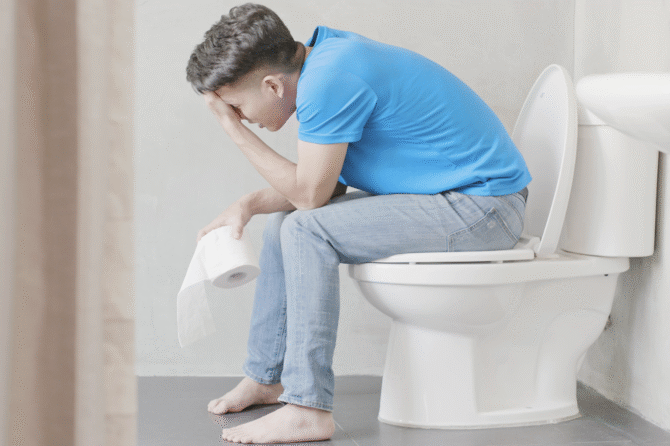
Effective Strategies in Combating Constipation and Anal Health
Effective Strategies in Combating Constipation and Anal Health
Constipation is one of the most common digestive problems of our time. Factors such as sedentary lifestyles, irregular eating habits, and stress caused by modern life can lead to defecation problems and seriously affect quality of life. However, constipation is not just a temporary discomfort; in the long run, it can form the basis for significant anal disorders such as hemorrhoids, anal fissures, and anal abscesses.
In this article, we share effective and scientific strategies that can be applied to prevent constipation and protect anal health in the long term.
What Is Constipation and Why Should It Be Taken Seriously?
Constipation is defined as infrequent, difficult, and often painful defecation. Fewer than three bowel movements per week, hard stools, and the feeling of incomplete evacuation are its main symptoms.
There are two main types:
- Functional constipation: Related to lifestyle, stress, dietary habits, and lack of physical activity.
- Organic constipation: May result from anatomical, neurological, or medication-related causes.
Both types can, over time, lead to trauma in the anal area, vascular pressure, and infections.
How Does Constipation Trigger Anal Disorders?
Constipation is one of the leading causes of anal conditions. Here’s how:
- Increased straining: Puts pressure on the blood vessels in the anal canal and triggers hemorrhoid formation.
- Hard stool tears the mucosa: This leads to anal fissures.
- Extended time on the toilet: Prolonged sitting causes pelvic vein stasis and increases the risk of hemorrhoids.
- Feeling of incomplete evacuation: Causes tension and, over time, spasms around the anus.
6 Effective Strategies to Combat Constipation
- High-Fiber Diet
Consuming 25–35 grams of fiber daily is the first line of defense.
Sources:- Oats, flax seeds
- Vegetables (spinach, broccoli)
- Fruits (apple, pear, prunes)
- Adequate Water Intake
Insufficient water leads to hard stools and slower bowel movements.
👉 At least 2–2.5 liters per day is recommended. - Regular Exercise
Activities like walking, yoga, and swimming support bowel function.
Exercise is also scientifically proven to benefit anal health. - Correct Toilet Position
Using a squat toilet or a footstool flattens the rectal angle and eases defecation. - Establish a Toilet Routine
Training the body to go at the same time every morning helps regulate bowel rhythm. - Stress Management
Stress suppresses the digestive system.
Meditation, breathing exercises, and relaxation techniques are effective against constipation.
What to Do If You Experience Persistent Constipation
If you have:
- Less than 2 bowel movements per week
- Ongoing abdominal pain
- Rectal bleeding or discharge
- Anal fissure or bleeding
You should consult a specialist without delay.
👉 Self-use of laxatives is not recommended, as it may lead to long-term bowel laziness.
Points to Consider in Constipation and Anal Disorders
- Fiber and water intake are crucial for hemorrhoid patients.
- Individuals with anal fissures must manage constipation carefully.
- Post-anal surgery patients may face complications like stitch rupture if constipated.
Expert Recommendations from Avrupa Cerrahi
- Personalized diet and lifestyle plans are created for each patient.
- Constipation management is central to treating anal fissures and cracks.
- Preventive consultation services are available for hemorrhoids and similar conditions in our clinic.

Leave a reply